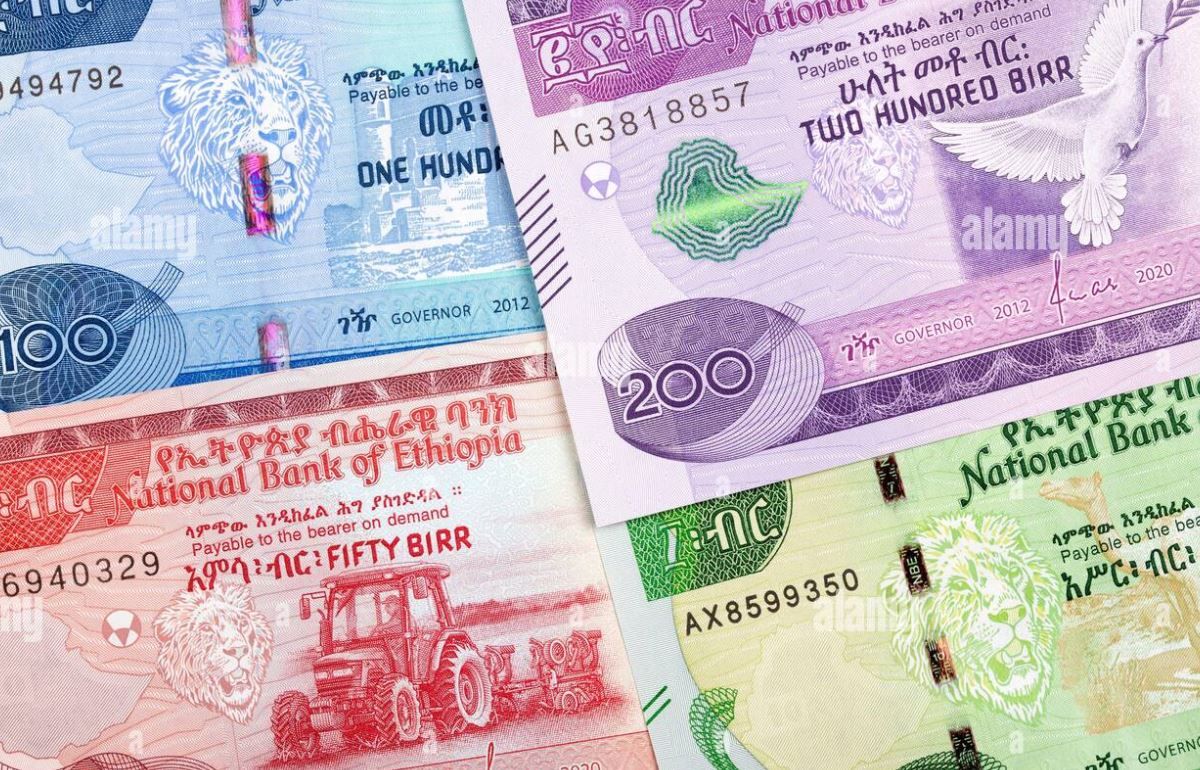Economy
Dollar at 53 ETB Birr and Euro at 59 Birr
The weakening of the Birr against the dollar has far-reaching consequences for the Ethiopian economy. As it exacerbates the problem of inflation, and the increasing value of the dollar makes imported goods more expensive, leading to higher prices for consumers.

The devaluation of the Ethiopian Birr (ETB) against major international currencies such as the US Dollar (USD) and the Euro has been a persistent issue for the country’s economy. Despite the government’s efforts to boost exports and narrow the gap between the unofficial black market exchange rate and the official bank exchange rate, the Birr has continued to tumble against the dollar and euro. At present, the exchange rate stands at 53 ETB per 1 USD and 59 ETB per 1 Euro, indicative of the ongoing depreciation of the national currency.
The weakening of the Birr against the dollar has far-reaching consequences for the Ethiopian economy. As it exacerbates the problem of inflation, and the increasing value of the dollar makes imported goods more expensive, leading to higher prices for consumers. In addition, the government has a significant amount of foreign currency debt, which requires the collection of tax revenue in ETB and payment in the foreign currency, adding to the pressure on the national currency.
The Basics
The Ethiopian Birr (ETB) is the official currency of Ethiopia. It is issued and regulated by the National Bank of Ethiopia, the country’s central bank. The value of the Birr is determined by supply and demand dynamics in the foreign exchange market and can be influenced by various economic and political factors.
The Birr is used as a medium of exchange for goods and services within Ethiopia and is also used to settle international transactions involving the country. Individuals, businesses, and the government hold and use Birr for daily transactions, savings, and investment.
The National Bank of Ethiopia has the authority to issue new Birr into circulation and to regulate the money supply to maintain stability in the currency. The central bank also sets monetary policy, such as interest rates, to influence economic activity and control inflation.
As the Birr continues to depreciate, the prices of commodities produced in Ethiopia are also likely to rise. This can have a significant impact on the country’s competitiveness in international markets and affect the purchasing power of its citizens. Furthermore, a weaker Birr also makes it more challenging for the government to repay its foreign debt and may limit its ability to secure new loans for development projects.
The depreciation of the Birr against major international currencies has become a significant challenge for the Ethiopian economy. The government has taken measures to address the issue, but with limited success, and the devaluation of the currency is likely to continue to have a profound impact on the country’s inflation, exports, and ability to repay debt. Addressing the root causes of the currency depreciation and implementing measures to stabilize the value of the Birr will be crucial for the long-term health of the Ethiopian economy.













